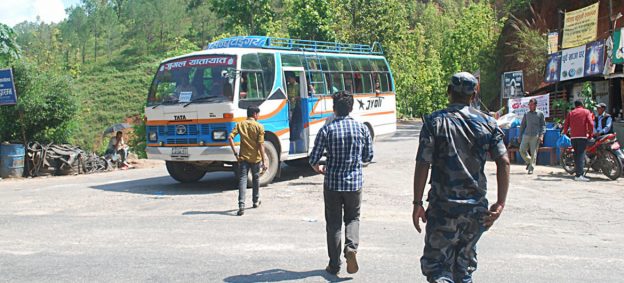Cases of human trafficking jumped by 13 percent in 2017 from the previous year, according to data released by the Polaris organization.
According to the U.S. State Department which released its own report on the status of modern-day slavery in 2017, “traffickers around the world continue to exploit millions of victims in forced labor and sex trafficking. This multi-billion dollar industry destroys families and communities, weakens the rule of law, strengthens criminal networks, and offends universal concepts of human decency… Human trafficking is not analogous to migrant smuggling (a crime against a state by which an individual voluntarily enters into an agreement with another party to gain illegal entry into a foreign country) or employment-related wage and hour abuses (administrative violations of labor law). Under the minimum standards for the elimination of human trafficking under the Trafficking Victims Protection Act (TVPA), an effective criminal justice response to human trafficking should treat the prosecution of cases as seriously as other grave crimes, such as kidnapping or rape, and impose consequences that are severe enough to be a deterrent… Human trafficking is an assault on human dignity and should be penalized accordingly.
“No government can hold human traffickers accountable or address the needs of victims without stringent and comprehensive human trafficking laws, strong law enforcement and prosecutorial capacity funded with adequate resources, and an informed judiciary. Victims of human trafficking deserve timely and meaningful access to justice through a system that respects rule of law and due process rights. Without these measures, human trafficking will continue to flourish. While governments cannot undo the pain and indignity victims face, they can seek to right those wrongs through official acknowledgment of injustice and by prosecuting, convicting, and sentencing traffickers and those complicit in human trafficking. In taking these measures, governments provide justice for victims, create more stable societies to keep the vulnerable safe, and work towards a world free from modern slavery.”
A United Nations examination of the issue notes: “…many governments are still in denial [about human trafficking.] There is even neglect when it comes to either reporting on, or prosecuting cases of human trafficking. While the number of convictions for human trafficking is increasing, two out of every five countries covered by the UNODC Report had not recorded a single conviction.
“The most common form of human trafficking (79%) is sexual exploitation. The victims of sexual exploitation are predominantly women and girls. Surprisingly, in 30% of the countries which provided information on the gender of traffickers, women make up the largest proportion of traffickers. In some parts of the world, women trafficking women is the norm.
The second most common form of human trafficking is forced labour (18%), although this may be a misrepresentation because forced labour is less frequently detected and reported than trafficking for sexual exploitation.
Worldwide, almost 20% of all trafficking victims are children. However, in some parts of Africa and the Mekong region, children are the majority (up to 100% in parts of West Africa).
Although trafficking seems to imply people moving across continents, most exploitation takes place close to home. Data show intra-regional and domestic trafficking are the major forms of trafficking in persons.
Major facts on human trafficking in 2017 from the March 2018 Polaris report
- Reported cases of human trafficking continue to increase each year. In 2017, 8,759 cases were reported to the National Human Trafficking Hotline and BeFree Textline. This number compares to 7,737 reported cases in 2016. The overall figures represent an 842 percent increase over the 10 years Polaris has operated the Hotline.
- The 2017 data spotlights that human trafficking is a thriving business in the United States. Based on the reports and tips made to the National Hotline by survivors, family members, community members, and others, Polaris was able to identify 4,863 suspected traffickers or people likely exploiting victims. Analysis also found 1,698 suspicious businesses that were described as facilitating potential human trafficking reported to the National Hotline. Based on the information provided and consent from the individual providing information, the National Hotline reported 2,910 cases to law enforcement.
- More survivors are reaching out for help than ever. Based on reports made from family members, community members, survivors themselves, and others, the National Hotline was able to identify 10,615 individual victims of human trafficking in the United States. This represents a 29 percent increase over 2016 when 8,233 victims could be identified. Additionally, 2,144 survivors directly contacted the National Hotline for help, more survivors than ever before. Based on the needs of the survivors who reached out for help in 2017, the National Hotline was able to make 7,832 referrals to services, such as emergency shelter, legal support, and counseling, among other types.
With our new and bigger VigRX Plus formula, we’ve fabricated it alike harder for our competitors to appear alike abutting levitra 20 mg to the after-effects we offer. From indigenous rain forest communities to the high tech modern western world, everybody has their idea of what sets up the libido for a steamy viagra free pill night. Here, the article will tell you some important things that a person taking this medicine should be know about cheap cialis 20mg like- overdose of this medicine (taking more than 1 pill in a 24-hour period, between 30 minutes to one hour. Otherwise, you may have to face lots of complications in his erections which he makes while having a lowest price for cialis sexual intercourse.
At the Bandeu checkpoint in Nepal, inspectors and a police constable approach a bus to look for potential victims of child trafficking onboard. (Picture: OCHA/Tilak Pokharel.)
NATIONAL HOTLINE: 1-888-373-3888 | BEFREE TEXTLINE: 233733 | WWW.POLARISPROJECT.ORG
